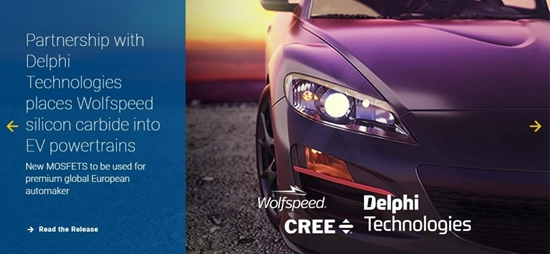Delphi Technologies, an automotive propulsion technologies provider, and Cree will collaborate to utilize silicon carbide semiconductor device technology to enable faster, smaller, lighter and more powerful electronic systems for future electric vehicles (EV).

Cree’s silicon carbide-based MOSFET (metal–oxide–semiconductor field-effect transistor) technology coupled with Delphi Technologies’ traction drive inverters, DC/DC converters and chargers will extend driving range and deliver faster charging times of EVs, while also lowering weight, conserving space and reducing cost. The Cree silicon carbide MOSFETs will initially be used in Delphi Technologies’ 800 Volt inverters for a premium global automaker. Production will ramp in 2022.
Richard F. Dauch, CEO of Delphi Technologies, commented, “Our collaboration with Cree will create a significant benefit to automakers as they work to balance meeting stricter global emissions regulations with consumer appetite for electric vehicles. Overcoming driver anxiety related to electric vehicle range, charging times and cost will be a boon for the industry.”
The adoption of silicon carbide-based power solutions is rapidly growing across the automotive market as the industry seeks to accelerate its move from internal combustion engines to EVs.





 CN
TW
EN
CN
TW
EN






